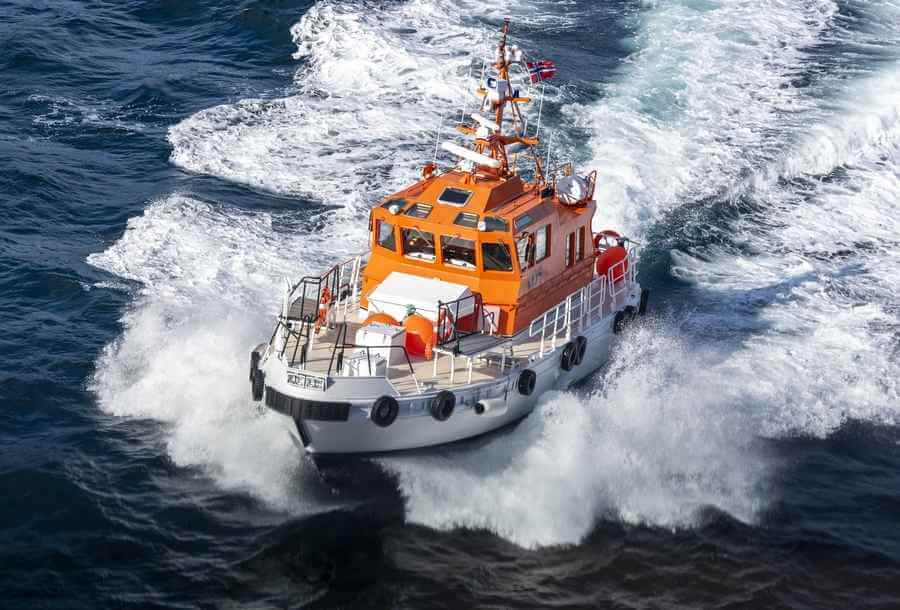What is Hull Insurance? What Does it Cover and Not Cover?

Marine insurance is a broad term that includes different aspects, like hull insurance.
Navigational hull insurance offers reimbursement if a vessel or its insurable part suffers damage while traveling, carrying freight, or even being repaired. It covers all physical losses, liabilities, and costs that involve third parties.
Hull insurance mainly protects the machinery and hull of operational vessels, such as ships. The hull here means the main body of the boat. This insurance offers financial protection for damage to the vessel’s machinery or hull due to covered risks. It applies to ships, from boats and yachts to fishing vessels, steamers, and beyond.
Who Is Eligible for Hull Insurance?
Hull insurance is essential for a variety of companies working in the maritime sector, including:
- Shipowners: Those who own ships, vessels, yachts, pleasure crafts
- Port Authorities: Organizations in charge of port management
- Private and Public Port Operators: Organizations engaged in port operations
Benefits of Marine Hull Insurance
Marine hull insurance offers several benefits to ship owners and operators, including:
Protection Against Financial Loss:
By covering the costs of hull and machinery damage, it protects ship owners from unexpected and costly repairs or replacements.
Compliance with Regulations:
Many countries need hull insurance for ships traveling through their territorial waters. Following these rules helps ship owners avoid legal and financial penalties.
Peace of Mind:
Operating ships involves risks like storms, collisions, and mechanical failures. Hull insurance offers security by reducing the financial consequences of such risks.
What Does Hull Insurance Cover?
Marine Hull Insurance offers protection against multiple hazards, including:
- Water Hazards: Damage caused by rivers, lakes, or other navigable bodies of water.
- Ship and Machinery Damage: Repairs or replacement of the structure and equipment of the ship.
- Fire, Burglary, or Theft: Damage caused by fire, burglary, or theft.
- Natural Disasters: Damage from volcanic eruptions, earthquakes, and lightning.
- Third-Party Liability: It covers damages caused by the insured vessel to other boats.
- Maintenance-Related Damage: Damage occurring during maintenance activities.
- Global Coverage: Protection covers all ocean-going vessels worldwide.
- Theft: It covers the theft of items from the vessel.
- Jettison: Intentional overboard throwing of cargo.
- Piracy: Coverage for incidents associated with piracy.
- Falling Objects: It covers damage caused by objects falling from aircraft, vehicles on land, docks, harbor equipment, or installations.
What Is Not Covered Under Marine Hull Insurance?
However, marine hull insurance does not cover the following:
- Gradual Wear and Tear: Damage from gradual wear and tear on boats and machinery
- Nuclear Perils: Damage caused by nuclear incidents.
- Radioactive Contamination: Losses caused by radioactive contamination
- Alcohol-Related Damage: Harm done by crew members while under the influence.
- Intentional Acts: Damage resulting from deliberate actions.
- Terrorist Activities: Vessel damage due to terrorist acts
- Ignoring Storm Warnings: Damage from sailing into a sea storm after receiving warnings.
- Goods Overloading: Damage due to overloading of goods.
Claim Settlement Process for Marine Hull Insurance
Following an incident, the procedure for submitting a hull insurance claim involves mainly the following steps:
- Notify the Insurance Company: Report the incident immediately to the insurance company.
- Register the Claim: Register the claim and keep the registration number for future reference.
- Provide Details: Share policy information and loss details.
- Survey Assessment: An inspector evaluates the harm and inspects the vessel’s condition.
- Document Submission: Submit the documents needed as per the surveyor’s instructions.
- Claim Approval: If approved, the claim amount is released.
Required Documents for Claim Settlement
When filing a claim, insurers can ask for the documents that follow:
- Claim-Intimation Form: Filled out and signed.
- Policy Document: Providing policy details.
- Engine and Deck Room Logbook: To track vessel activities.
- Repair Receipts: Keeping track of repair costs.
- Survey Reports and Photographs: Assessing Damage and Conditions.
- Drydocking Receipt: If needed.
- Additional Documents: As requested by the insurer.
Hull insurance is essential in the maritime sector by offering financial protection against risks. With this insurance, you can confidently travel through unpredictable seas, knowing that your investments and operations are safe from the dangers of the open waters.
If you want to know more about this hull insurance in Dubai, contact New Age Insurance Brokers LLC at +971 4 357 3378 or email us at info@newageib.com.



